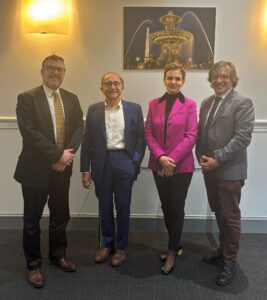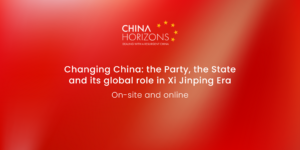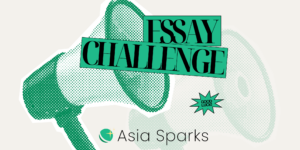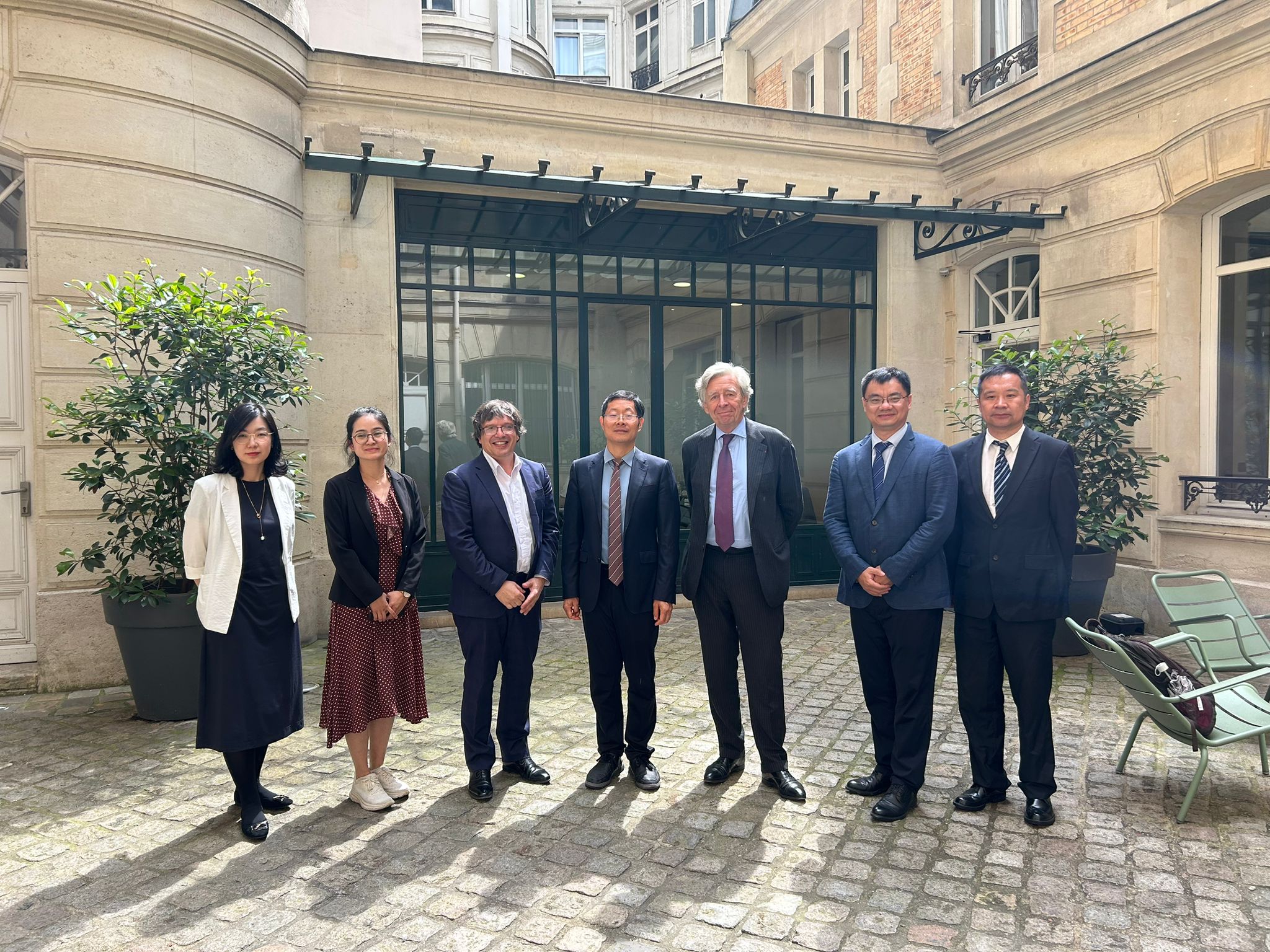Asia Centre welcomed the China Institute of Contemporary International Relations (CICIR) in Paris, July the 2nd 2024.
As a follow-up from our last meeting in Paris in September 11, 2023, the parties exchanged in-depth and substantive views on a variety of subjects related to international relations, especially concerning the relationship between France, Europe, and the People’s Republic of China, trade and investments, and the war in Ukraine. The parties agreed to meet under the framework of Asia Centre’s Code of Conduct for Open Dialogue, whereas both parties are encouraged to publish their respective statements after the meeting.
Attendees:
CICIR:
- Zhang Jian, Vice President
- Chen Yang, Executive Director, Institute of European Studies
- Shang Yue, Deputy Director, Institute of Eurasian Studies
- Li Jun, Head of Central and Eastern Europe Studies, Institute of European Studies
- Mu Yangzi, Head of French Studies, Institute of European Studies
Asia Centre:
- Evrard Didier
- Arnaud Leveau
- Méline Rousseau
Asia Centre’s statements regarding the July 2, 2024 meeting:
Trade & Investments in China : French industry executives are growing worried about the lack of a level playing field in China. Most of them wonder, “Is it a free market?”. Concerned entrepreneurs react by lowering Foreign Direct Investment (FDI) in China and by shifting investments to Europe or to other regions. As per the European Chamber of Commerce in China, quite a number of issues are reported and should be addressed by the Chinese government. CICIR expects that during the 3rd Plenum later this month, announcements will be made to address these concerns. Both sides reaffirmed the importance of developing exchanges regarding economic issues in the future. CICIR and Asia Centre have agreed to meet again and to review the announcements from the 3rd Plenum.
War in Ukraine and Its Impact on China-Europe Relations.
Asia Centre notes that during the Shangri-La Dialogue in Singapore, the PRC delegation notably avoided President Zelensky. This incident needs clarification, as it undermines China’s claimed “neutral” stance in the conflict. Growing concerns among European governments and citizens about China’s role in this war are further deteriorating sentiment towards the PRC, adversely affecting trade relations, investment, and various other exchanges.
Moreover, China must seriously consider its obligations under the security pact signed by President Xi Jinping in December 2013 with then-Ukrainian President Viktor Yanukovych. In this agreement, China committed to protecting Ukraine against “invasions and nuclear threats.” This pledge, ratified by China’s legislature in 2015, explicitly indicates that the commitment was made to Ukraine as a sovereign nation, not to Yanukovych individually, who had left office in 2014. Upholding this commitment is crucial for maintaining international credibility and fulfilling China’s responsibilities as a signatory to this pact.
Public Access to our website: PRC delegations regularly request to meet with us face to face for in-depth conversations, while at the same time the Chinese people in the mainland are being prohibited from accessing our website www.asiacentre.eu. We suggest that the Chinese government lift these restrictions to promote transparency and facilitate better understanding and dialogue between our peoples. This would align with the spirit of open dialogue and international cooperation that both sides are striving to achieve. Note: this comment was shared with the delegation in writing, prior to the meeting.




